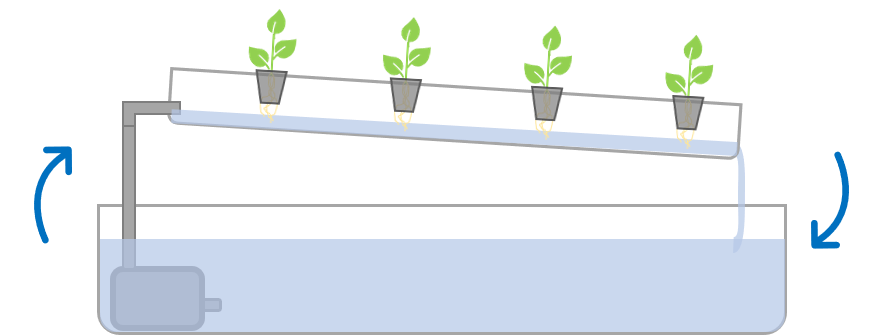The WasserFarm is an innovative, practice-oriented educational project funded by the German Federal Environmental Foundation (DBU).
The project consortium supports students and teachers in the design, construction, and experimental use of hydroponic cultivation systems – depending on local conditions, this could be on a classroom windowsill, in a corner of a STEM lab, or in a school garden greenhouse.
Hydroponics is a soilless and thus location-independent method of growing plants. The plants receive all essential nutrients from a nutrient solution. By continuously recycling the water – circulating this nutrient solution – hydroponic cultivation is highly resource-efficient and avoids environmentally harmful nutrient surpluses, pesticides, insecticides, and herbicides. In light of increasing droughts and falling groundwater levels, the integration of the WasserFarm learning element offers students the opportunity to develop problem-solving and design skills through experimentation while raising awareness of global challenges in the spirit of Education for Sustainable Development (ESD).
Throughout the project, with the help of three partner schools in Brandenburg and Schleswig-Holstein, a flexible teaching and learning concept on this topic is being developed. A participatory and iterative approach ensures that teaching materials are developed collaboratively, continuously evaluated, and adapted to maximize learning success. In the end, the aim is to create a proven concept that other schools can also benefit from.

Teachers and students play a key role: in the first project phase, they define priorities and learning goals based on curricula and their own interests.
The overall goal of the project is to create a cross-disciplinary educational framework that allows students to learn about sustainable food production, circular technologies, nutrient and water cycles, and resource efficiency. This strengthens awareness of global challenges and solutions in line with the Sustainable Development Goals. Moreover, students will gain the knowledge and skills to independently set up and operate a hydroponic system. This promotes sustainability competencies and empowers young people to actively contribute to climate change solutions.
The project is being implemented at three pilot schools in two federal states (Brandenburg, Schleswig-Holstein).
Project duration: March 1, 2024 – February 28, 2026












